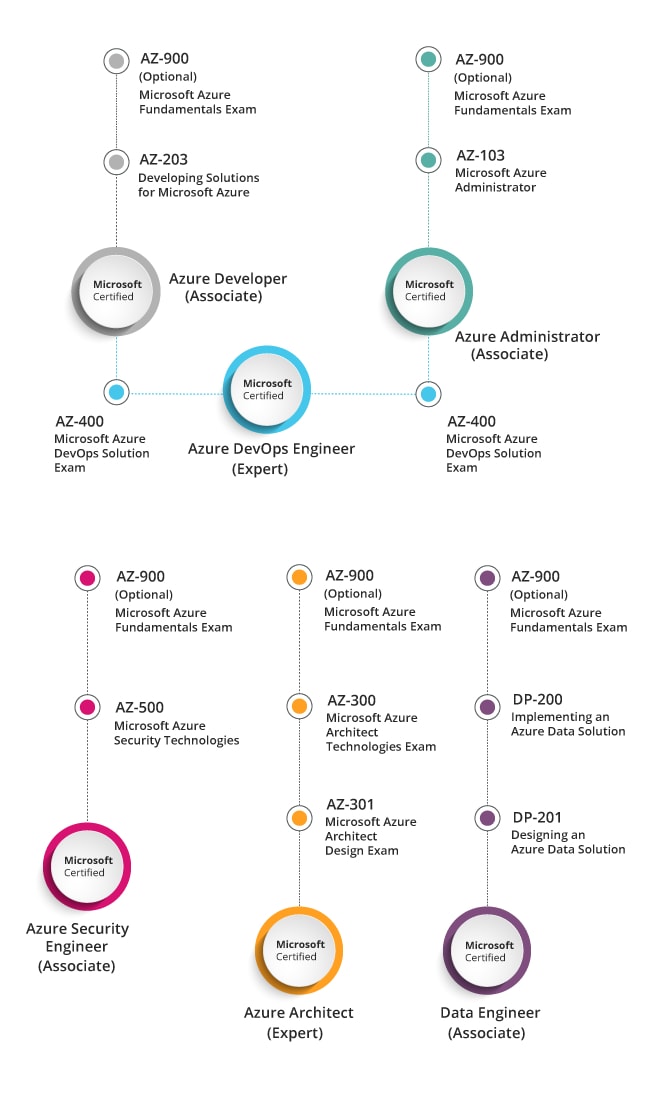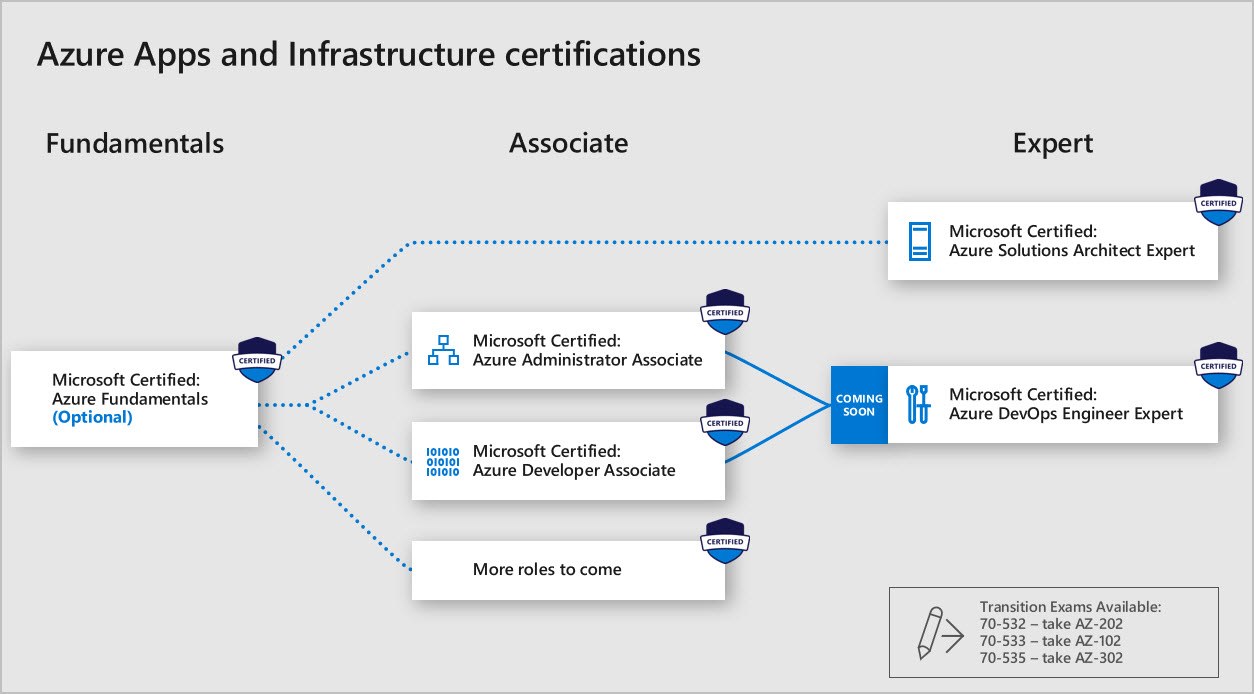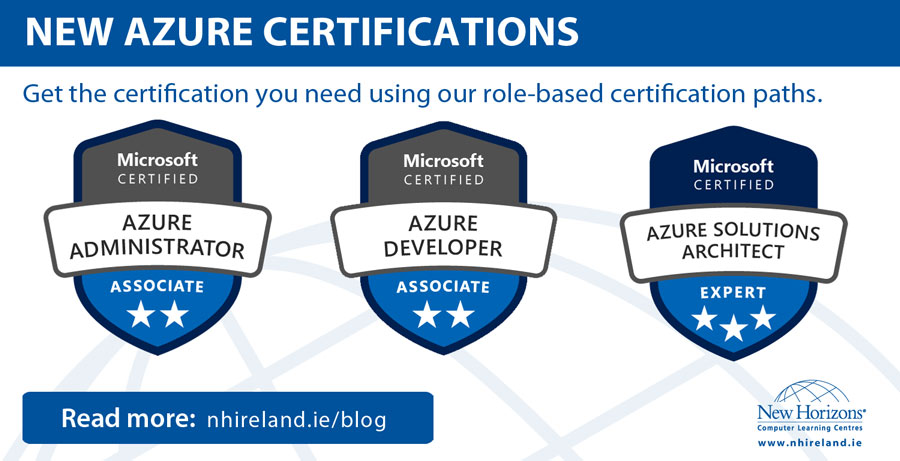Understanding Azure Databases: An Overview
Azure databases have become an integral part of modern cloud computing, offering unparalleled flexibility, scalability, and cost-effectiveness. These managed database services, built on a robust and secure infrastructure, enable organizations to focus on application development and innovation without worrying about the underlying database management tasks. Azure database certification, consequently, has emerged as a valuable credential for IT professionals seeking to demonstrate their expertise in this rapidly growing field.
Exploring Azure Database Certification Paths
Microsoft offers several Azure database certification paths tailored to various roles and expertise levels. The DP-300 (Azure Database Administrator Associate) certification, for instance, focuses on managing and deploying Azure databases, optimizing performance, and implementing security solutions. This certification is designed for professionals with experience in on-premises database administration seeking to transition to cloud-based environments.
For those interested in data science and machine learning, Microsoft provides the DL-100X (Azure Data Scientist Associate) certification. This credential covers data manipulation, modeling, and visualization using Azure machine learning services, Azure Databricks, and Microsoft SQL Server. Another certification, the DP-200 (Implementing an Azure Data Solution), targets candidates with foundational knowledge in data engineering and data management.
How to Prepare for Azure Database Certification
Preparing for Azure database certification requires a strategic and well-planned approach. Begin by evaluating your current skill level and identifying areas that need improvement. Next, create a study plan that incorporates self-study, online courses, and hands-on experience.
For self-study, refer to Microsoft’s official documentation and whitepapers, which cover various Azure database topics in depth. Online courses, such as those offered by Microsoft Learn, Pluralsight, and Udacity, provide structured learning paths and interactive labs. Hands-on experience can be gained through Azure free accounts or trial subscriptions, allowing you to practice deploying, managing, and optimizing Azure databases.
Additionally, consider joining study groups or forums to connect with other professionals preparing for the same certification. Engaging in discussions, asking questions, and sharing resources can significantly enhance your learning experience.
Key Skills Required for Azure Database Certification
Achieving Azure database certification demands a strong foundation in various skills related to database design, management, security, and performance tuning. Here are some essential skills to focus on:
- Database Design: Understand how to design scalable, secure, and high-performance databases using Azure tools and services. Familiarize yourself with database modeling techniques, data partitioning strategies, and indexing.
- Database Management: Learn how to manage Azure databases, including creating, modifying, and deleting databases, configuring backup and restore options, and monitoring database performance.
- Security: Master security best practices for Azure databases, such as implementing encryption, managing access control, and configuring firewall rules.
- Performance Tuning: Develop skills in optimizing Azure database performance, including query analysis, index management, and caching strategies.
Real-world experience is crucial for mastering these skills. Participate in Azure database projects, contribute to open-source projects, or volunteer to manage database infrastructure at your current job to gain practical experience.
The Role of Azure Databases in Modern IT Infrastructure
Azure databases play a pivotal role in modern IT infrastructure, offering unparalleled flexibility, scalability, and cost-effectiveness. By leveraging Azure databases, organizations can focus on application development and innovation without worrying about the underlying database management tasks.
Azure databases integrate seamlessly with other Azure services, such as Azure App Service, Azure Functions, and Azure Kubernetes Service, enabling the creation of robust, scalable, and secure cloud-native applications. Moreover, Azure databases support hybrid scenarios, allowing organizations to extend their on-premises systems to the cloud, ensuring a consistent and seamless user experience.
The growing demand for Azure database professionals highlights the importance of Azure database certification. Organizations increasingly seek certified professionals to design, implement, and manage Azure database solutions, ensuring optimal performance, security, and cost-efficiency. By obtaining an Azure database certification, IT professionals can demonstrate their expertise, enhance their career prospects, and contribute to their organization’s digital transformation journey.
Strategies for Excelling in Azure Database Certification Exams
Acing Azure database certification exams requires careful planning, effective time management, and a deep understanding of the exam format. Here are some strategies to help you succeed:
- Understand the Exam Format: Familiarize yourself with the exam format, including the number of questions, types of questions (multiple choice, drag-and-drop, etc.), and time allotted. This knowledge will help you manage your time effectively during the exam.
- Study Systematically: Create a study plan that covers all exam objectives. Break down complex topics into smaller, manageable concepts and allocate sufficient time to master each one.
- Use Practice Tests: Practice tests are invaluable resources for exam preparation. They help you understand the exam format, identify areas that need improvement, and build confidence.
- Leverage Learning Materials: Make use of official Microsoft learning materials, online courses, and books to deepen your understanding of Azure databases. Microsoft Learn, Pluralsight, and Udacity offer structured learning paths and interactive labs for Azure database certification preparation.
- Join Study Groups: Participate in study groups or forums to connect with other professionals preparing for the same certification. Engaging in discussions, asking questions, and sharing resources can significantly enhance your learning experience.
- Maintain a Positive Mindset: Stay positive and believe in your ability to succeed. A positive mindset can help you stay focused, reduce stress, and improve performance during the exam.
- Embrace Continuous Learning: Azure database technologies and best practices evolve rapidly. Stay up-to-date by attending workshops, webinars, and conferences. Engage with the Azure community to stay informed about the latest trends and developments.
Maintaining and Expanding Your Azure Database Certification
Obtaining an Azure database certification is a significant milestone, but it’s crucial to stay current with evolving Azure database technologies and best practices. Continuous learning ensures you remain competitive and valuable to your organization. Here are some ways to maintain and expand your Azure database certification:
- Follow Azure Updates: Stay informed about Azure database updates, announcements, and deprecations. Subscribe to Azure blogs, newsletters, and social media channels to receive the latest news and insights.
- Engage with the Azure Community: Participate in Azure community events, webinars, and forums. Engaging with other professionals can help you learn new skills, share experiences, and stay up-to-date with industry trends.
- Attend Workshops and Conferences: Attend Azure-focused workshops, training sessions, and conferences to deepen your understanding of Azure databases. These events often feature expert-led sessions, hands-on labs, and networking opportunities.
- Leverage Online Learning Platforms: Utilize online learning platforms, such as Microsoft Learn, Pluralsight, and Udacity, to access structured learning paths, interactive labs, and expert-led courses. These resources can help you expand your skillset and stay current with Azure database technologies.
- Practice Hands-On Experience: Regularly work with Azure databases in real-world scenarios. Hands-on experience ensures you understand the practical implications of Azure database features and best practices.
- Document Your Learning Journey: Maintain a record of your learning activities, certifications, and hands-on experience. Documenting your journey can help you track your progress, identify areas for improvement, and demonstrate your expertise to potential employers.
By following these strategies, you can maintain your Azure database certification and expand your skillset, making you a valuable asset in the ever-evolving world of cloud computing.
The Value of Azure Database Certification in Your Career
In today’s rapidly evolving tech landscape, cloud computing skills are in high demand. Obtaining an Azure database certification can significantly enhance your career growth and advancement opportunities. Here’s why:
- Industry Recognition: An Azure database certification serves as industry-recognized proof of your expertise in Azure databases. It demonstrates your commitment to staying current with the latest technologies and best practices, making you a valuable asset to potential employers.
- Career Advancement: Certified professionals often receive better job opportunities, higher salaries, and faster career advancement. An Azure database certification can help you stand out in a competitive job market and open doors to new roles and responsibilities.
- Practical Skills: Preparing for an Azure database certification requires hands-on experience, which helps you develop practical skills and a deep understanding of Azure databases. These skills are highly sought after by employers and can be applied to real-world projects and scenarios.
- Networking Opportunities: Engaging with the Azure community provides opportunities to connect with other professionals, share experiences, and learn from experts in the field. Networking can lead to new job opportunities, collaborations, and partnerships.
- Continuous Learning: Obtaining an Azure database certification is just the beginning. Staying current with Azure database technologies and best practices requires continuous learning. Engaging in ongoing professional development ensures you remain competitive and valuable in the ever-evolving world of cloud computing.
Many professionals have experienced the positive impact of an Azure database certification on their careers. For instance, Sarah, an Azure Database Administrator, shared, “Getting certified in Azure databases has opened up new opportunities for me and boosted my confidence in my skills. I’ve been able to take on more challenging projects and contribute more effectively to my team’s success.”
In conclusion, an Azure database certification can provide a solid foundation for career growth and advancement in cloud computing. By investing in your professional development, you’ll not only enhance your skills but also increase your value to potential employers and improve your career prospects.







